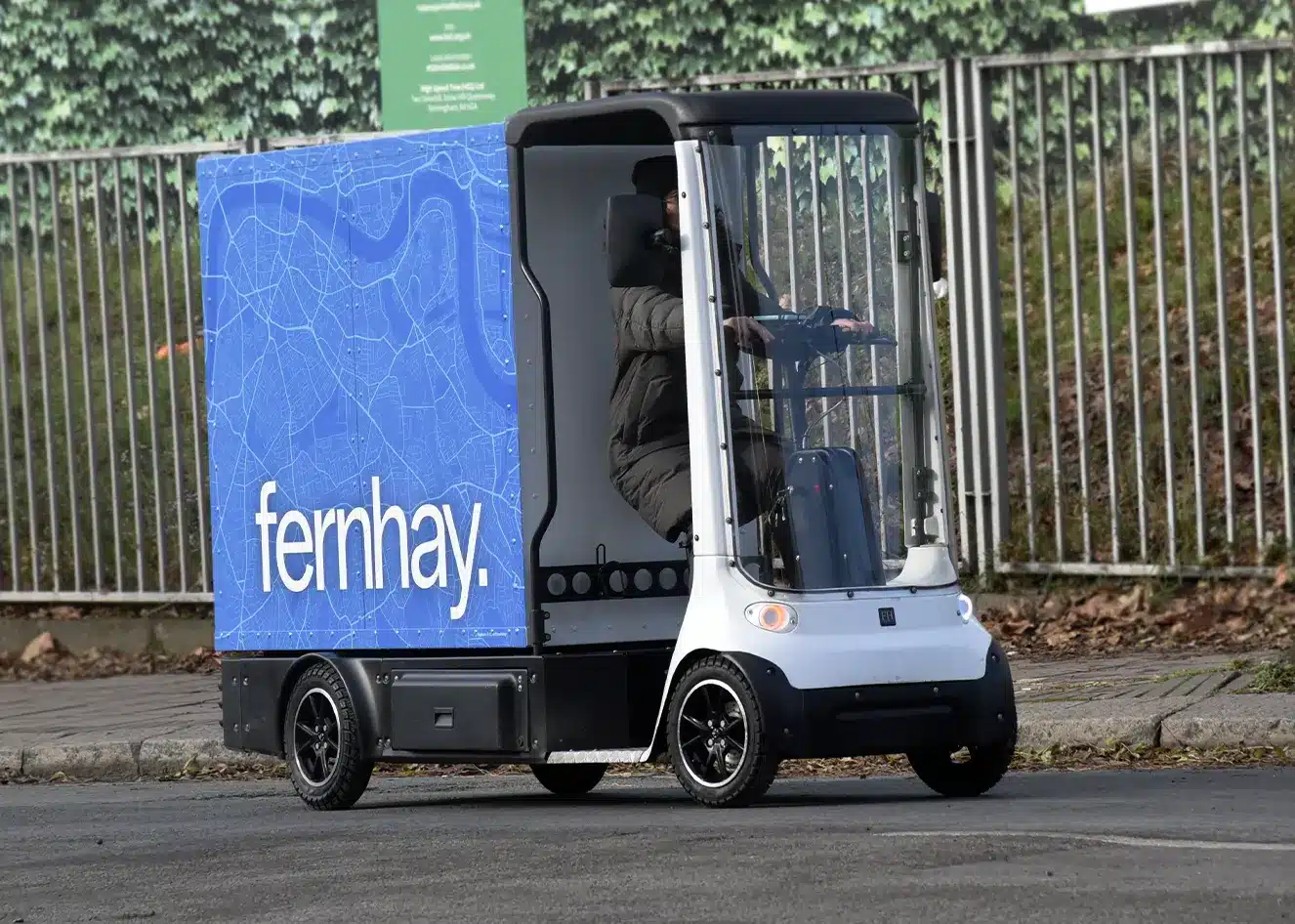As urban areas strive to become greener, the impact of traditional delivery vans on the environment is a growing concern. Vans, while efficient in transporting goods, contribute significantly to urban pollution and traffic congestion. Enter eQuads, an innovative solution poised to revolutionize urban logistics. This article explores the environmental toll of conventional vans and how Fernhay’s eQuads present a sustainable alternative.
The Environmental Impact of Vans
Carbon Emissions and Air Quality
Delivery vans, primarily powered by fossil fuels, are a major source of carbon emissions. A single diesel van can emit approximately 130 grams of CO2 per kilometer. In densely populated cities, this contributes to poor air quality, posing health risks to residents. Nitrogen oxides (NOx) and particulate matter (PM) from diesel engines are particularly harmful, exacerbating respiratory conditions and reducing overall air quality.
Traffic Congestion and Urban Planning
Vans also play a significant role in urban traffic congestion. The increase in e-commerce has led to a surge in delivery vehicles on city streets. This not only slows down traffic but also leads to higher fuel consumption and more emissions due to idling engines. Urban planners face challenges in managing this influx, often resulting in inadequate infrastructure to support sustainable transport solutions.
The Rise of eQuads
What are they?
eQuads are electric quadricycles designed for urban deliveries. Compact, efficient, and environmentally friendly, these vehicles offer a viable alternative to traditional vans. Equipped with electric motors, eQuads produce zero tailpipe emissions, making them an ideal solution for reducing urban pollution.
Benefits
- Reduced Emissions: eQuads run on electricity, which can be sourced from renewable energy. This transition from fossil fuels to electric power significantly cuts down greenhouse gas emissions.
- Lower Noise Pollution: Electric vehicles (EVs) are quieter than their diesel counterparts. This helps in reducing noise pollution in urban areas, contributing to a more peaceful city environment.
- Enhanced Maneuverability: The compact size of eQuads allows them to navigate narrow streets and congested areas more efficiently than vans. This leads to fewer traffic jams and smoother traffic flow.
- Cost Efficiency: Operating an eQuad is generally cheaper than running a diesel van. Lower maintenance costs and the elimination of fuel expenses make eQuads a financially attractive option for businesses.
Challenges and Considerations
Infrastructure and Charging Stations
One of the primary challenges in adopting them is the availability of charging infrastructure. Cities need to invest in widespread charging stations to support the growing number of electric vehicles. Additionally, efficient energy management systems are required to ensure that the grid can handle increased demand.
Regulatory and Policy Support
Government policies play a crucial role in the adoption of eQuads. Incentives such as subsidies, tax breaks, and grants for businesses investing in electric vehicles can accelerate the transition. Furthermore, stringent emission regulations and restrictions on diesel vehicles can drive the shift towards greener alternatives.
The Future of Urban Logistics
Technological Advancements
The future looks promising with continuous technological advancements. Innovations in battery technology, such as faster charging times and longer battery life, will enhance the efficiency and appeal of eQuads. Autonomous driving features are also being explored, which could further revolutionize urban deliveries.
Broader Adoption
As awareness of environmental issues grows, more businesses are expected to adopt eQuads. The combination of economic and environmental benefits makes them a compelling choice for urban logistics. Collaboration between private companies and public sectors will be essential in scaling up the use of them and ensuring a sustainable future for urban transportation.
Conclusion
The environmental toll of traditional delivery vans is undeniable, but solutions like eQuads offer a promising path forward. By reducing emissions, alleviating traffic congestion, and providing cost-effective alternatives, they are set to transform urban logistics. As cities continue to grow and evolve, embracing sustainable transport solutions will be crucial in building greener, healthier urban environments.

